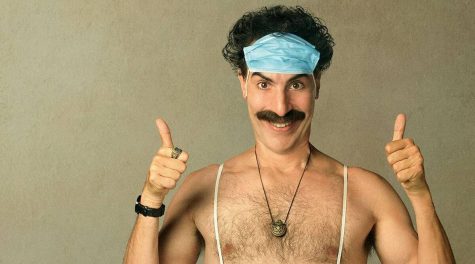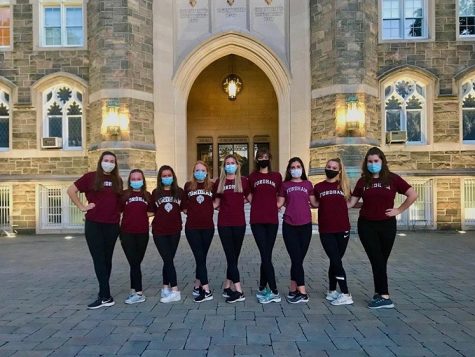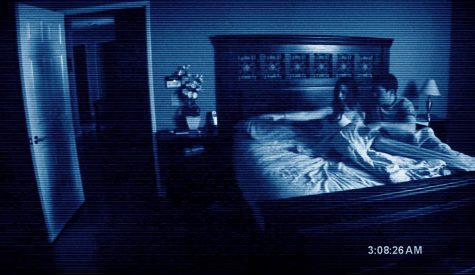Junior Prepares for Paralympic Games
Patrick DeCrescenzo, FCRH ’22, has participated in paralympic snowboarding competitions across the globe. (Courtesy of the Finnish Snowboard Association)
November 4, 2020
For Brooklyn native Patrick DeCrescenzo, FCRH ’22, snowboarding gave him a sense of belonging.
In 2000, he suffered a stroke at birth that resulted in a condition known as hemiplegia, or paralysis of one side of the body. For DeCrescenzo, it was his left side that was affected.
In a post on his Instagram account, DeCrescenzo opened up about the incident and described his parents’ devastation.
“Instead of the doctors telling them how healthy their new child was, they were told that he may never walk, run or play sports,” DeCrescenzo said in his post.
But DeCrescenzo did walk and run, and in 2022 he may be competing in the Winter Paralympic Games.
The journey wasn’t necessarily an easy one, according to DeCrescenzo. As a child, he went to intense physical and occupational therapy almost every day. His condition also took a mental toll on him at times.
“In a lot of my early life I always saw myself an outcast,” DeCrescenzo said. “I knew I was different but I didn’t want to accept it.”
He discovered snowboarding at age 10 after aggravations with local sports reached a head.
“I was struggling to keep up with the other kids in basketball and baseball,” he said. “It was frustrating me so much that I just wasn’t enjoying it anymore.”
It was then that DeCrescenzo’s parents discovered the Adaptive Sports Foundation in upstate New York. The program, run by volunteer coaches, teaches children with cognitive and physical disabilities how to ski and snowboard.
Instead of participating in community sports that forced DeCrescenzo to adapt to his peers’ expectations, his coaches adapted snowboarding to the specifics of DeCrescenzo’s body.
“The program was so impactful because it was designed to teach people like me,” he said. “With that focus, I was able to reach my fullest potential.”
As the only snowboarder at the Adaptive Sports Foundation with a physical disability, DeCrescenzo also learned a lot about his teammates with cognitive disabilities.
“It was a really eye-opening experience for me,” he said. “They came to understand my world and I learned a lot about theirs. All of us really bonded and became more empathetic.”
Since then, DeCrescenzo has had a rich snowboarding career, competing across the nation and globe in a variety of Paralympic competitions, including several World Cups. In 2016 he was approached by Lane Clegg, a coach from Team Utah. After traveling to the state and training with him for the first time, DeCrescenzo felt an instant connection.
“He understood my body but also understood how to race,” DeCrescenzo said. “He had the best of both worlds.”
DeCrescenzo joined Team Utah and began training in the hopes of making the U.S. team for the 2018 Winter Paralympic Games. At one major qualifying event in 2017, he had an experience that completely altered his mindset. After months of anxiety regarding the race and coming down from one run DeCrescenzo described as “decent, but not enough,” he let go of his expectations on his last run.
“I just decided to get out of my head, do what I came here to do and just have fun,” DeCrescenzo said.
He ended up cutting a number of seconds off of his run. While the time still fell short of the one necessary to qualify, DeCrescenzo learned an important lesson.
“I was reminded of why I do this in the first place,” he said. “I’m in this to have the biggest impact I can on other people. At the end of the day it’s not about me.”
This more carefree outlook has served DeCrescenzo well during the pandemic. Prior to COVID-19, he had plans to take two years off from college and train full time in Utah for the 2022 Winter Paralympic Games. But in a time of such unpredictability, he felt a big life change was not worth it.
DeCrescenzo will continue to train and compete when he can, hopefully taking advantage of the long winter break to hit the slopes. He is scheduled to travel to Beijing in March to test the venue before the 2022 Paralympic Games the following year. However, as with all facets of life right now, future competitions, especially international ones, remain uncertain.
What is certain is DeCrescenzo’s resolve to try his best and have fun.
“It’s impossible to have a plan in all of this,” he said. “All you can control is how hard you work at it, not the other circumstances. With everything in life, you just have to give it your absolute all.”
Culture Editor for Volume 101, Volume 102.












Patrick’s story is so inspiritational. God Bless him and his family.